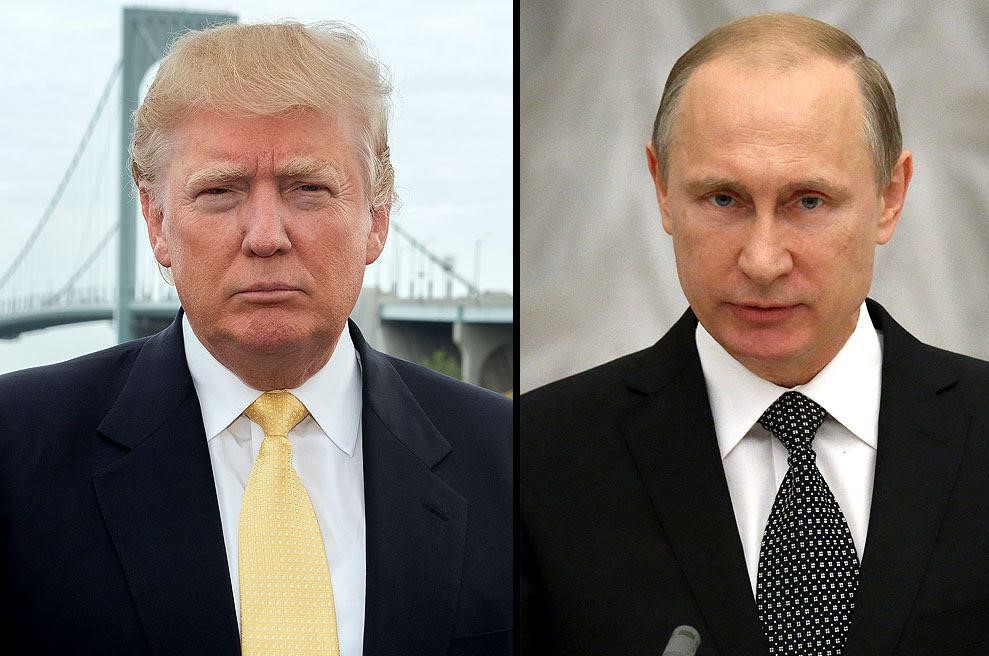By
Tom Arms
It’s official. The winner of the US presidential elections is Vladimir Vladimirovich Putin.
I hear you. Putin’s name was nowhere near the ballot papers. It was Clinton versus Trump and a few also rans.
And, of course, it will be Donald J. Trump who takes the oath of office on the steps of the Capitol building and then moves into the prime piece of real estate at 1600 Pennsylvania Avenue.
But it was Putin, and the corrupt Russian oligarchy who are the biggest beneficiaries of Trump’s election. The appointment of Rex Tillerson as Secretary of State confirmed it– and the Trump Administration’s swing to a pro-Russian foreign policy. Exxon CEO Rex Tillerson is undoubtedly a brilliant businessman. He is also a close friend of Putin and an even closer friend of Putin loyal Lieutenant Igor Sechin. He is also an opponent of Western sanctions against Russia and a man who will become very very rich if those sanctions are lifted.
Of course, Texan Rex still has to be confirmed by the Senate. But Republicans have a solid majority in the upper house and Tillerson has the backing of Republican foreign policy luminaries such as Condoleezza Rice and Robert Gates, both, of whom now work for lobbyists retained by Exxon Mobil.
Putin’s aims are simple. To re-establish Russian hegemony in Eastern Europe as a base for political supremacy in Eurasia; to replace the United States as the major non-Arab power in the Middle East and to stabilise his domestic political power base by engineering the lifting of Western sanctions.
Even before the election of Trump and the nomination of Tillerson things were going Putin’s way. The two biggest bulwarks against the expansion of Russian influence in Europe are the EU and NATO. The first provides a political and economic alternative and the other protects it with a US-backed defensive umbrella.
European Unity was already suffering from its failure to recover from the 2008-2009 banking crisis and the refugee crisis of 2015 when Britain voted Brexit. That was quickly followed by the referendum vote in Italy which strengthened that country’s Eurosceptic Five Star Movement, and the selection of pro-Russian Francois Fillon as the Republican Party candidate in next spring’s French presidential elections.
As for NATO, from its 1949 start, the European allies have doubted the sincerity of Washington’s commitment to their defence. Moscow–under the communists and Putin– has consistently encouraged the doubters in an effort to “decouple” Western Europe from the United States. Donald Trump’s campaign rhetoric about recognising the Russian annexation of Crimea, lifting sanctions against Russia, refusing to come to the aid of a NATO ally who has not committed at least two percent of their GDP to defense spending and now, the nomination of Rex Tillerson, has strengthened the hand of the doubters and increased the vulnerability of Europe to Russian pressure.
If Trump’s intention is to annoy and worry Europe then he doesn’t need to do any more. He has done enough just by raising questions which have forced Europeans to re-think their relationships with democratic America and authoritarian Russia.
As for the Middle East, well Putin won in Aleppo. Syria’s President Assad is now likely to stay in power. He owes Putin big time. The Russians have a solid military presence in the heart of the Arab world and a mountain of political capital.
It would appear that it was Russian military success in Syria that won the amoral heart of Donald Trump. The warplanes of single-minded Vladimir Putin are extremely effective at killing the Islamic Jihadists whose elimination is the stated number one foreign and defense policy objective of the American president-elect. The Russian planes are also remarkably good at eliminating innocent women and children and humanitarian aid convoys.
For President-elect Donald J. Trump it appears to boil down to a simple case of the enemy of my enemy is my friend. The problem is that in this case the enemy of Trump’s enemy is also the enemy of his country’s old and established friends in Europe.
Tom Arms is a broadcaster and columnist focused on world affairs. You can hear his weekly world affairs podcast at www.lookaheadnews.com and follow him on twitter @LookAheadTV. Tom is available for public speaking engagements.
LookAhead Radio World Report for week commencing 19 December:



No Comments Yet!
You can be first to comment this post!